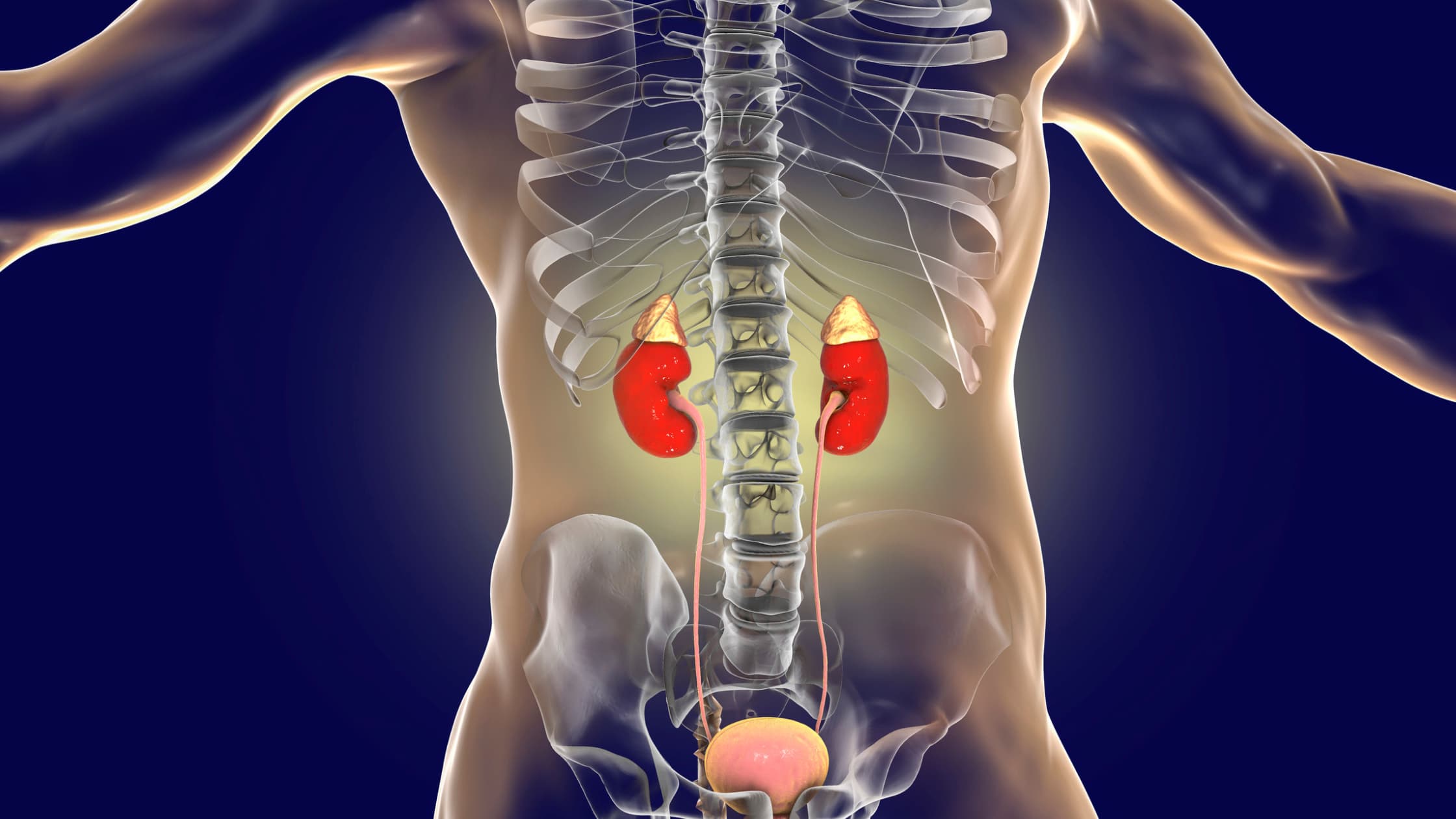It’s common to experience adrenal fatigue at some point in your life. Your adrenal glands release cortisol in a daily rhythm, normally peaking in the morning, just before waking and continue to drop until bedtime. However stress causes cortisol to spike outside of this normal daily rhythm. The rise isn’t a bad thing (and actually could be a good thing, keep reading to find out why), as it helps us deal with recovery and ability to adapt following a stressful event.
What happens though, is that depending on what else is going on with your body, organs and toxic load, adrenals can become overworked and overwhelmed. This is when you may begin experiencing symptoms of adrenal fatigue.
Common symptoms of adrenal fatigue include:
- Difficulty getting up in the morning
- Heart palpitations
- Cravings for salty food
- Irritability, nervousness
- Lightheadedness when going from sitting to standing
- Insomnia or waking up at 2am when glucose levels drop
- Fatigue throughout the day
- Muscle weakness
When it comes to alleviating adrenal fatigue, there are a series of organs beyond just the adrenals that need to be addressed. Specifically we are looking at how effectively the cortisol that is being produced by the adrenal glands is moving through the organs in the body. Remember cortisol is not the enemy here, it’s the dysfunction of certain organs that is at issue. And the dysfunction of those organs almost always comes down to one thing, toxicity.
To get to the bottom of adrenal fatigue, we not only have to look at the adrenals, but three part of the body as well. Here are the three parts you need to consider:
Brain-HPA Axis
The hypothalamic-pituitary-adrenal (HPA) axis is a hormone-based system that regulates the body’s reaction to stress. The brain and HPA axis work as a team and must communicate back and forth with each other. So if the adrenal glands are not functioning well, we also have to look at the brain and make sure the feedback loop is working properly.
One thing that is important to know here is that the hypothalamus and pituitary glands have no blood-brain barrier, because they have to receive sensitive hormonal information from our endocrine glands. This means that they are very vulnerable to toxins. Everyday exposure to toxins can travel up to the brain and have an immediate effect on the healthy functioning of the HPA axis. So a lot of our adrenal fatigue can be a result of high toxicity in the brain, ie. neurotoxicity.
Liver
The second place we need to look is the liver. Even if the HPA axis feedback loop is working properly and the adrenals are making cortisol as they should, the liver still needs to metabolize, or process the cortisol. However if the liver is overwhelmed with detoxification due to an overload of toxicity (heavy metals, pollution, poor diet, etc), or if the microbiome in your intestines or the common bile duct is not working properly (again, due to toxicity driven leaky gut or gut dysbiosis), then the liver will not metabolize the cortisol that the cells need.
Cells
The third place is the cells. Once cortisol is metabolized by the liver, it can be made bioavailable for the cells to use. But, if cells are inflamed, for a variety of reasons like toxicity, poor diet, bad fats, high blood sugar, poor lifestyle, etc, the exterior of the cells become rigid and less permeable, which means the cells are not able to receive the necessary cortisol. So then, you have to look at repairing the cells. This is where fasting comes in. More on this below.
9 Strategies for Repairing your Adrenals
- Create ketones. Ketones are magic for brain health. Ketones go up to the brain and repair the tissue in our brain.
- Autophagy Fasting. This is a 16-18 hour fast, which is known to support the healthy overturn and detoxing of cells.
- Intermittent Intermittent. Creating an intermittent fasting lifestyle, which means daily or regularly fasting. Intermittent fasting is such a powerful healing tool that I believe every doctor should be recommending Intermittent Fasting to their patients.
- Support your liver. There are lots of things you can do to support your liver, like castor oil packs and coffee enemas. Watch 4 Hacks for Liver Health.
- Up your good fats and avoid bad fats.
- Reduce refined flours and sugars.
- Bring down your toxic load. It is important to become aware of where you might be exposing yourself to toxins in your home and immediate environment. For example, is the water you’re drinking filtered? Are you eating conventionally grown fruits and vegetables? Is your deodorant and shampoo safe? Check out my favorites page for products I love and use.
- Apply the concept of “hormesis”. This means giving the body a little bit of stress so that it learns how to adapt. This is what happens to our mitochondria when we fast. We can apply this same principal to the adrenals. When we put a little stress on the adrenals through intermittent fasting, we encourage the adrenals to repair themselves. For example, one study found that while too much cortisol impacts memory, a little cortisol or short bursts of cortisol actually improve cognitive function in the prefrontal cortex and hypothalamus. This is the power of a hormetic effect!
- Apply the power of “intermittent living”. According to this study, you can undo metabolic syndrome, inflammation and adrenal fatigue using the practices of intermittent living, such as cold baths, breathing techniques for intermittent hypoxia (ie. breathwork) and intermittent fasting.
Whew, I know that is a lot of information! So if you’re looking for simple steps to help you get from adrenal fatigued to creating a fasting lifestyle, here you go!
6 Simple Steps to go from Adrenal Fatigue to a Fasting Lifestyle
- Slowly begin to intermittent fast daily, this means 13-15 hours of fasting. You can do this in 3 easy steps to intermittent fasting by pushing back your breakfast an hour each day.
- Lower carbs, refined flours and sugars and increase good fats to stabilize blood sugar
- Increase sea salt and mineral consumption during fasting.
- Break your fast with good fats like avocado, olives, nuts and protein in order to avoid an insulin spike.
- Once you’ve been comfortably intermittent fasting for a few weeks, you can try some of the other 7 types of fasting, as they all have unique benefits to the body.
- Finally, if you’re really looking to reset your brain and body, do a deep detox with me in the TOXIN RESET to remove toxins from the body and brain to heal the adrenals. We live in the most toxic time in human history, knowing how to detox is just as important as knowing what to eat and when to eat!
RESOURCES
- Reset Academy: https://resetacademy.drmindypelz.com
- Dr. Mindy’s Facebook Page: https://www.facebook.com/drmindypelz
- Dr. Mindy’s Facebook Group: http://bit.ly/Resetters











Toxin reset please
Hi there! You can find information at toxinreset.mykajabi.com
excellent video. toxin reset please
Toxin reset ????
Hi there!
We renamed our Toxin Reset Program to Thrive Program. You can find more info on it here: https://bit.ly/3FiNsgC
Hi Mindy + Team,
I have adrenal fatigue but I’ve been intermittent fasting (16hrs) for 2 years. I’ve seen the weight creep back on. I’ve bought your book fast like a girl. The book tells me I should mix up my fasting but with adrenal fatigue I don’t want to put my body under further stress?
Thanks